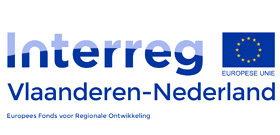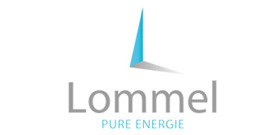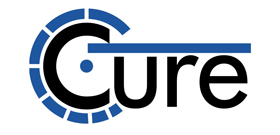Trial E-Truck on hydrogen successful
Strolling down the Eindhoven city center you have probably seen it around: the hydrogen powered garbage truck from CURE Waste Management. As of November 29th 2013 this truck is deployed every Friday for collecting waste paper in the environmental zone of Eindhoven. Now, a year later, it's time to evaluate.
In cooperation with E-Trucks Europe and the Brabant Development Company (BOM) Cure initially built a garbage truck with an electric powertrain. In November 2013 the E-Truck was extended with a hydrogen range extender during the Interreg project 'Hydrogen region Flanders South Netherlands' in cooperation with WaterstofNet, Nedstack and Triphase. The hydrogen range extender turns hydrogen into electricity which allows the truck to remain operational for an entire day without the need to recharge. This makes it a fully electrical powered garbage truck without any emissions.
Large CO2 saving
The results of the first year are very positive. By using hydrogen as an energy source 109,37 kg CO2 less was discharged during each operational day. This represents a CO2 saving of 4.83 tons per year. These results were achieved while using the truck just one day a week. The expected savings using the truck on a daily bases are obvious. The facilities for vehicles on hydrogen are expanding. Meanwhile there are four hydrogen refueling stations in the Netherlands, including one on the AutomotiveCampusNL in Helmond. This latter is owned by WaterstofNet, an organization that develops projects and roadmaps around sustainable hydrogen for zero-emission transport and energy storage. WaterstofNet focuses mainly on the region Flanders – South Netherlands.
Operating range 360 kilometers
Frans van Strijp, CEO of Cure Waste Management is extremely pleased: 'I must admit that I was very skeptical in the beginning, but the possibilities of the hydrogen truck within our area exceeded my expectations. It can drive a full working day without having to fill up. By using hydrogen the E-Truck has a wide operating range allowing us to not only use it in Eindhoven, but also in the surrounding towns.'
Further optimization
The employees of E-Trucks Europe are very pleased with the progress of the trial as well. Sander Braken: 'The trial has enabled us to get to know the system through and through and to chart the energy needs of the truck. For example, we have learned that the power level of the battery pack stays the same during the waste collection. Flip Bamelis adds: 'For us it was a successful year which will certainly be continued. We now look forward to test the truck under extreme weather conditions. We hope it will be a cold, harsh winter in which we can experience how the E-Truck holds itself. We’ll use every opportunity to further optimize the E-Truck.'
More pounds, less diesel
'Personally, I think hydrogen is the future,’ answers Frans van Strijp on the question how he sees the future. 'We now have fourteen vehicles on natural gas, but the supply of natural gas is running out. Hydrogen is an ideal replacement. It is durable and causes no emissions, which makes it very environmentally friendly. We are also trying to find durable solutions for our older diesel vehicles. Our goal is to collect as many pounds of waste as possible using a minimum of diesel. It would be nice if we could deploy the hydrogen garbage truck more often than just one day a week; a second E-Truck on hydrogen is also one of our wishes.' André Beukers, CEO of E-Trucks Europe, sees opportunities for the future: 'The concept works; that much is obvious. Now it’s important to realize the further rollout. Driving on hydrogen must be an economically viable option for more companies and with a little support from the government, it should be possible.’








